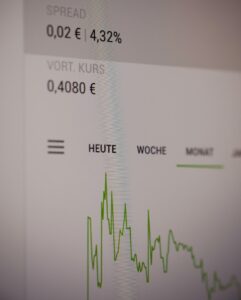The foreign exchange market, also known as forex, is a decentralized global market where currencies are traded. With an average daily trading volume of over $6 trillion, forex offers a lucrative opportunity for individuals and businesses to profit from currency fluctuations. However, to participate in forex trading, one must choose a reliable and reputable forex broker. In this article, we will discuss the key factors to consider when selecting the best forex broker for your commerce needs.
Regulation and Security:
The first and foremost factor to consider when choosing a forex broker is regulation and security. A regulated broker ensures that your funds are safe and that you are trading in a fair and transparent environment. Regulatory bodies such as the Financial Conduct Authority (FCA) in the UK, the National Futures Association (NFA) in the US, and the Australian Securities and Investments Commission (ASIC) in Australia are known for their stringent regulations. It is advisable to choose a broker regulated by these reputable authorities.
Trading Platform:
The trading platform provided by the broker is another crucial factor to consider. A user-friendly and technologically advanced trading platform can enhance your trading experience and improve your chances of success. Look for platforms that offer features such as real-time market quotes, advanced charting tools, and the ability to execute trades quickly and efficiently. Popular trading platforms include MetaTrader 4 (MT4) and MetaTrader 5 (MT5).
Currency Pairs and Instruments:
Different forex brokers offer a variety of currency pairs and instruments for trading. It is essential to choose a broker that offers the currency pairs you are interested in trading. Additionally, consider if the broker offers other trading instruments, such as commodities, indices, or cryptocurrencies, if you have a diversified trading strategy.
Spreads and Commissions:
Forex brokers earn their profits through spreads and commissions. Spreads refer to the difference between the buying and selling price of a currency pair. Lower spreads mean lower trading costs, which can significantly impact your profitability. Some brokers offer fixed spreads, while others offer variable spreads that fluctuate depending on market conditions. Additionally, check if the broker charges any commissions per trade and evaluate if the overall trading costs are competitive.
Leverage:
Leverage allows traders to control larger positions with a smaller amount of capital. While leverage can amplify profits, it also increases the risk of losses. Different brokers offer varying leverage ratios, so it is crucial to choose a broker that offers leverage suitable for your trading strategy and risk tolerance. Keep in mind that higher leverage may not always be the best option, especially for inexperienced traders.
Customer Support:
Reliable customer support is vital when trading forex. Look for brokers that offer multiple channels of communication, such as phone, email, and live chat. Consider the availability and responsiveness of customer support, as quick and efficient support can be crucial during times of technical difficulties or when you need assistance with your trading account.
Educational Resources:
For beginners and even experienced traders, educational resources provided by the broker can be invaluable. Look for brokers that offer educational materials such as tutorials, webinars, and market analysis. These resources can help you improve your trading skills and stay updated with market trends.
Deposit and Withdrawal Options:
Consider the deposit and withdrawal options offered by the broker. A good forex broker should offer a variety of convenient and secure payment methods. Check if the broker supports bank transfers, credit/debit cards, and popular e-wallets such as PayPal or Skrill. Additionally, look for brokers that have a smooth and efficient withdrawal process, ensuring that you can easily access your profits.
Conclusion:
Choosing the best forex broker for your commerce needs is crucial for a successful trading journey. Consider factors such as regulation, trading platforms, currency pairs, spreads and commissions, leverage, customer support, educational resources, and deposit/withdrawal options. Remember that selecting the right broker can significantly impact your trading experience and overall profitability. Take the time to research and compare different brokers to ensure you make an informed decision.






